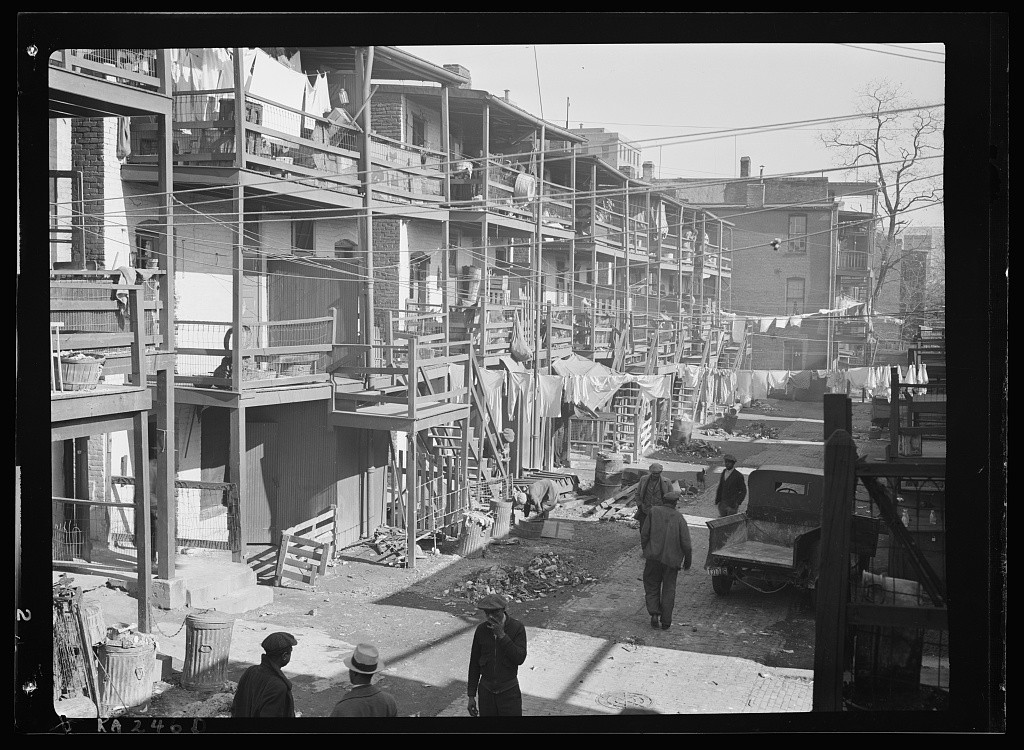
This week on my podcast, I read my @Medium column "The Rent's Too Damned High," an essay about the economic incoherence of making home-ownership the path to economic security and a middle-class life.
medium.com/p/520f958d5ec5…
1/
medium.com/p/520f958d5ec5…
1/

Obviously, home-ownership does allow for intergenerational wealth accumulation (simply compare the wealth accumulation gap between Black families who were excluded from home subsidies like the GI Bill and white families who weren't), but that's not the whole story.
2/
2/
Owning a home is a good way to insulate yourself from a landlord's whims and a good place to stash gains from the labor market, but when a nation turns to asset appreciation - not labor - to increase prosperity, almost everyone loses within a generation or two.
3/
3/
Without strong labor rights, guaranteed pensions are replaced with a mandate to pump your savings into the stock market casino, where you will always be the sucker at the table. The insufficiency of America's 401k-based retirement savings is grimly comic.
4/
4/
When workers surrendered employment-based security for asset-based security, we lost the bloc that fought for adequate Social Security and affordable tuition. That means that your parents' house needs to fund their retirement AND your college tuition.
5/
5/
It's likely not adequate for both, but even it is, it's not going to be enough to pay for your own downpayment, which you'll need if your parents are going to liquidate their sole major asset to keep themselves from burdening you while you enter the labor market.
6/
6/
That means homeowners' kids are overwhelmingly likely to end up tenants, and that's the second whammy. You see, the most reliable way to increase the value of owning a house is to make tenancy WORSE.
7/
7/
The fact that the home your parents bought for $30k is worth $1.5m today can't be explained by the new roof, the finished basement, the cool neighborhood boutiques or the people who want to move to your hometown for work.
8/
8/
The main driver of real-estate appreciation is that being a homeowner is better than being a tenant - so everything that makes tenancy worse makes homeowning better, which makes houses worth more.
9/
9/
It's not just tax-advantaged shelter (homeowners can write off half their monthly shelter bills, tenants can't). It's also the fact that every time a house sells, the market rate is set by bidders who are buying the house as "income property" - that is, to rent it out.
10/
10/
Just as in labor markets, shelter markets are zero sum. When you have the income security that comes with the right to a regular shift, your boss has the cost-insecurity of having to pay you when business is slow.
11/
11/
Likewise, if you have the right to force your landlord to fix the roof, the rental is worth less. If your landlord can quickly evict you when a better tenant comes along, the rental is worth more. If rent increases are set by law, the rental is worth less.
12/
12/
If your landlord can charge usury interest, or force you to use an ISP that pays a kickback, the rental is worth more.
Everything that's better for tenants is worse for landlords - and the worse things are for landlords, the less they're willing to spend on income property.
13/
Everything that's better for tenants is worse for landlords - and the worse things are for landlords, the less they're willing to spend on income property.
13/
The more a landlord is willing to spend to buy a house, the more everyone else has to spend to outbid them. Everything that makes life worse for tenants makes homes more valuable.
14/
14/
Convincing America that home ownership would increase the middle-class also created a large constituency who'd simp for landlords in order to increase the value of their single major asset.
15/
15/
The joke was on us. Now that Wall Street is using the trillions the Trump stimulus pumped into the financial markets to pay 15% above asking, in cash, for every single-family dwelling that hits the market, everyone who doesn't have a home won't ever get one.
16/
16/
All those home owners' kids will be tenants, and will be subject to every depredation that home owners backed in order to protect their kids. Karma's a nasty thing.
17/
17/
America once had strong labor markets, whose dividends were turned into sturdy homes. When we threw in our lot with our bosses on labor rights, we walked into a trap that would cost us our homes, too.
18/
18/
Here's the podcast episode:
craphound.com/news/2021/06/1…
and here's the MP3 (hosting courtesy of the @InternetArchive, who will host all your stuff for free, forever):
archive.org/download/Cory_…
19/
craphound.com/news/2021/06/1…
and here's the MP3 (hosting courtesy of the @InternetArchive, who will host all your stuff for free, forever):
archive.org/download/Cory_…
19/
Here's the RSS for my podcast:
feeds.feedburner.com/doctorow_podca…
and here's that original article:
gen.medium.com/the-rents-too-…
eof/
feeds.feedburner.com/doctorow_podca…
and here's that original article:
gen.medium.com/the-rents-too-…
eof/
ETA - If you'd like an unrolled version of this thread to read or share, here's a link to it on pluralistic.net, my surveillance-free, ad-free, tracker-free blog:
pluralistic.net/2021/06/14/eut…
pluralistic.net/2021/06/14/eut…
• • •
Missing some Tweet in this thread? You can try to
force a refresh














